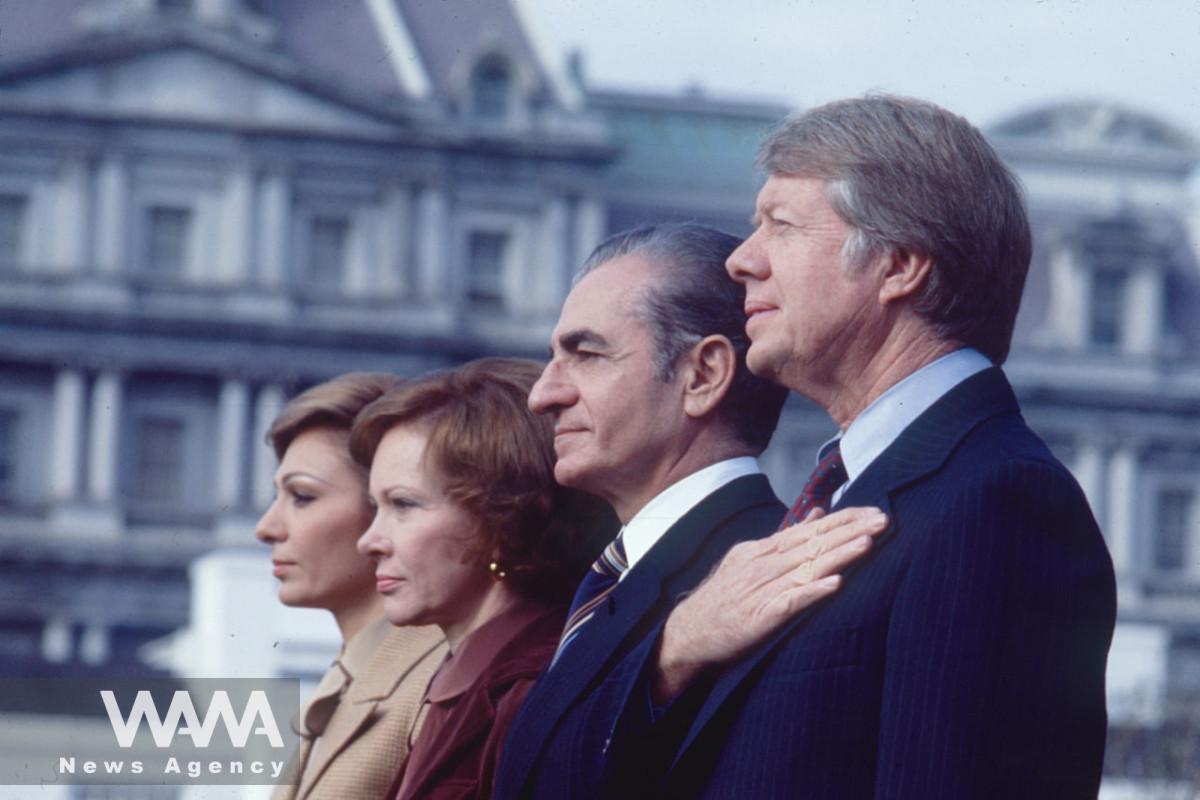The Passing of Jimmy Carter on the Anniversary of His Visit to Iran
WANA (Dec 30) – Jimmy Carter passed away at the age of 100, coinciding with the anniversary of his visit to Iran in 1977.
Today, December 30, 2024, the news of Jimmy Carter’s death, the 39th President of the United States, was announced. Two years after his election, Carter, accompanied by his wife and a delegation of 400 businessmen, advisors, and political, economic, and cultural experts, traveled to Iran. His visit lasted 17 hours before he continued to India. However, the aftershocks of his visit to Iran ultimately contributed to the fall of the Pahlavi regime.
During a series of visits to European and Asian countries, Carter arrived in Tehran on December 30, 1977. He and his delegation were warmly welcomed by Mohammad Reza Shah Pahlavi and his wife, Farah Diba, in what was described as an exceptional reception by the Shah of Iran for the U.S. President.
This visit occurred while Ayatollah Khomeini, the leader of Iran’s Islamic movement, was in exile in Iraq in the 13th year of his banishment.
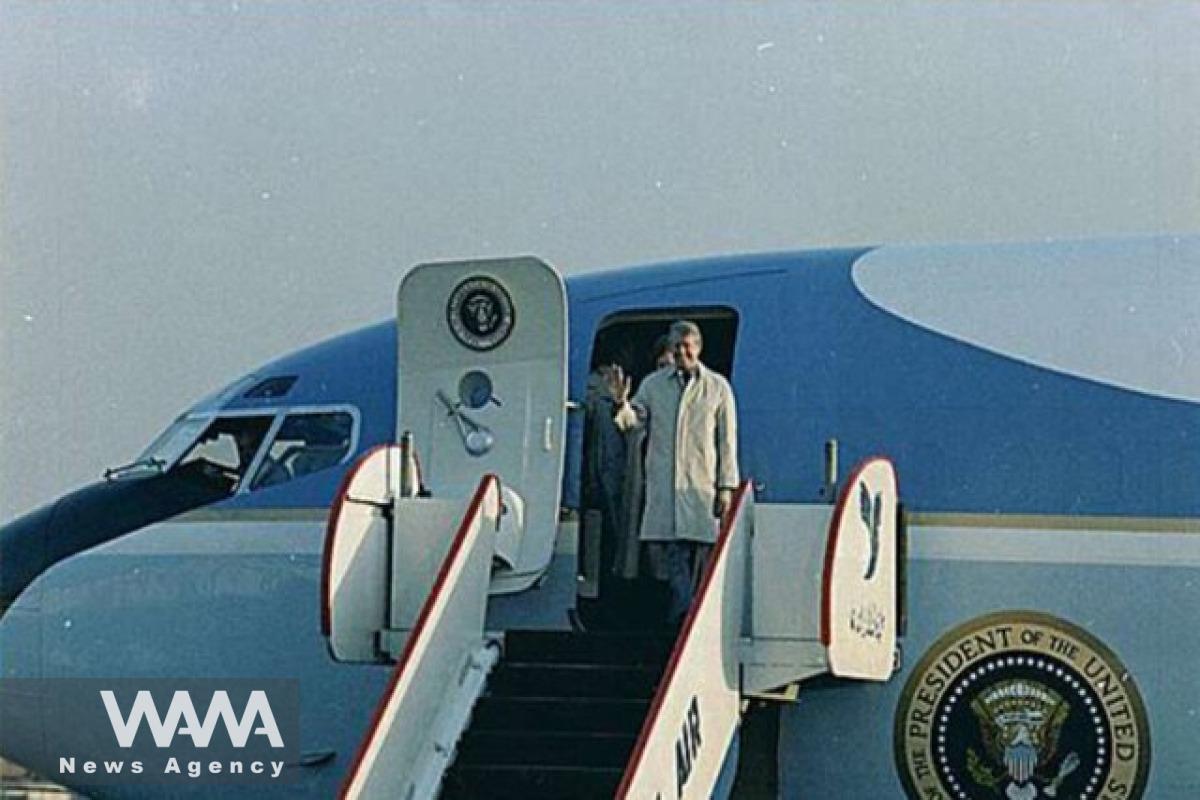
Why Did Carter Visit Iran?
What prompted Carter’s visit to Iran in the middle of his tour of Europe and Asia? What was the U.S. President’s objective?
Carter traveled to Tehran to demonstrate Washington’s full support for Mohammad Reza Shah to both his domestic and international critics amidst escalating revolutionary movements in Iran.
During a Christmas Eve banquet hosted by the Shah at the Niavaran Palace in 1978, Carter addressed the Shah, stating: “Because of the great leadership of the Shah, Iran has become an island of stability in one of the most troubled regions of the world. Your Majesty, this is because of the respect, admiration, and love that your people have for you. No other country in the world is closer to planning jointly with the United States than Iran. No other country shares closer ties with us in addressing regional issues of mutual interest, and no other leader enjoys deeper respect and closer friendship from me.”
In his speech, Carter also described the Shah as “beloved by the people.”
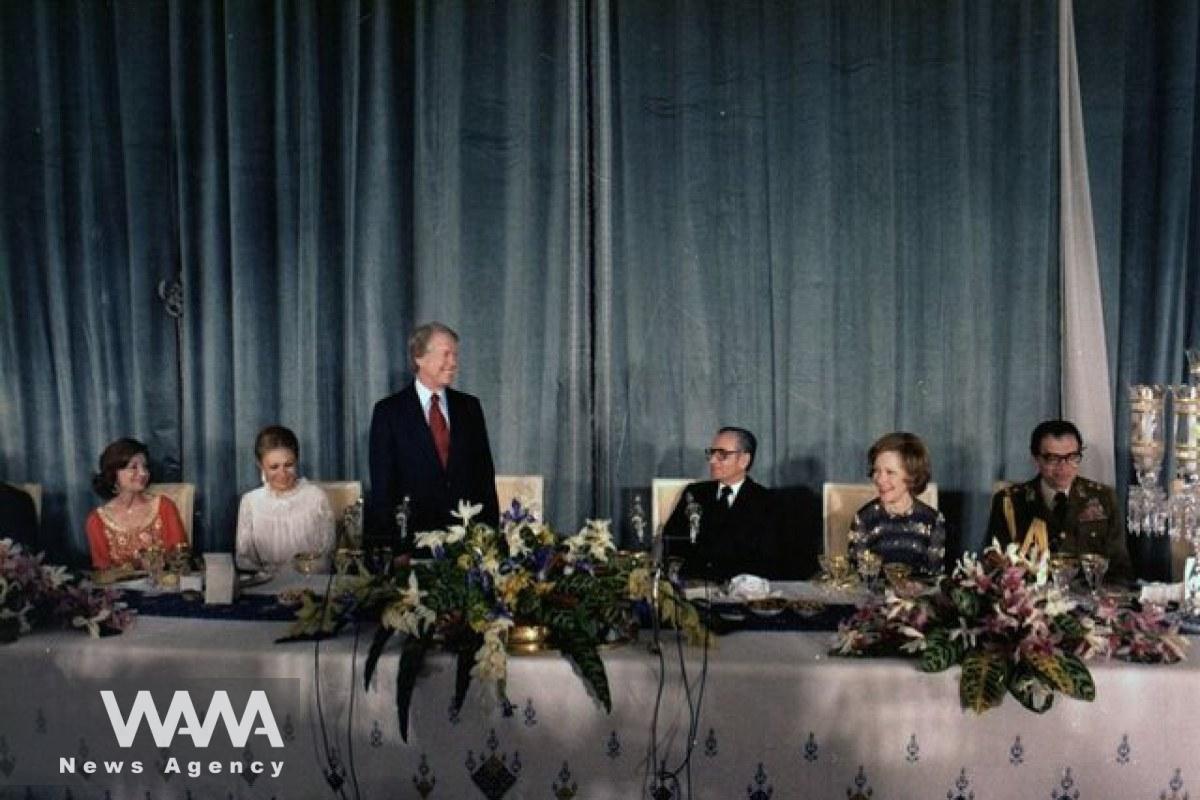
Escalation of Protests
Following this visit, Agence France-Presse reported 10 to 12 scattered anti-American demonstrations by small groups in various parts of Tehran. Led by students and supporters of the exiled leader, these gatherings extended beyond Tehran University to Tehran’s Takht-e Jamshid Street. Additionally, some protesters attempted to enter the American agricultural company located on Qavam al-Saltaneh Street, but were stopped by military forces firing warning shots.
Protests were not limited to Tehran. In the city of Babol, students from the local teacher training school held demonstrations after the arrest of a teacher who had spoken against the Shah and the United States.
The unrest and protests extended beyond Iran’s borders, reaching the United States. Iranian students in Los Angeles and Washington also protested Carter’s visit. Demonstrators in Los Angeles held rallies and chanted slogans against the Shah, while 400 Iranian students in Washington distributed protest leaflets outside the White House.
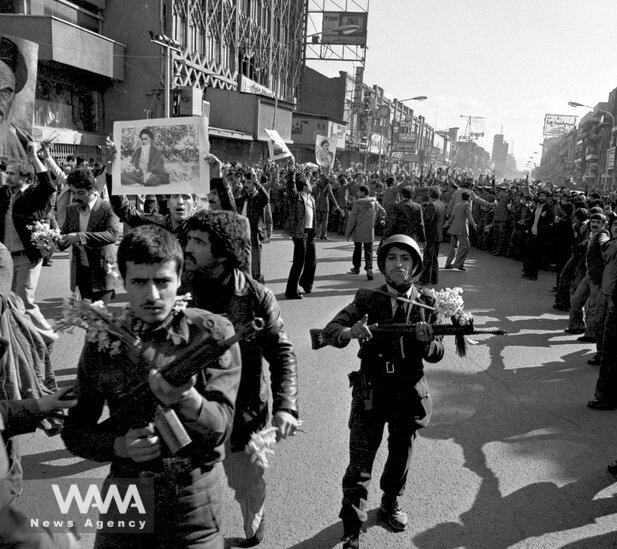
Carter’s description of Iran as an “island of stability” during his Tehran visit seemed more like an attempt to reassure the Shah of U.S. support rather than a genuine belief in Iran’s stability at the time.
This reality became evident shortly after his visit. As the Pahlavi regime escalated its brutal crackdown on students and protesters, social unrest and political turbulence intensified. These uprisings spread from Tehran to other cities across the country.
The widening scope of the unrest and the Shah’s inability to control the situation deeply alarmed the U.S. government. Consequently, Carter interrupted his tour of Europe and Asia to visit Iran and publicly support the collapsing Pahlavi regime. However, this support did little to help the Shah’s regime.
After 37 years of reign and direct involvement in Iran’s governance, Mohammad Reza Shah was forced to leave Iran permanently on January 16, 1979, following the establishment of the Regency Council in the hope of returning to power.
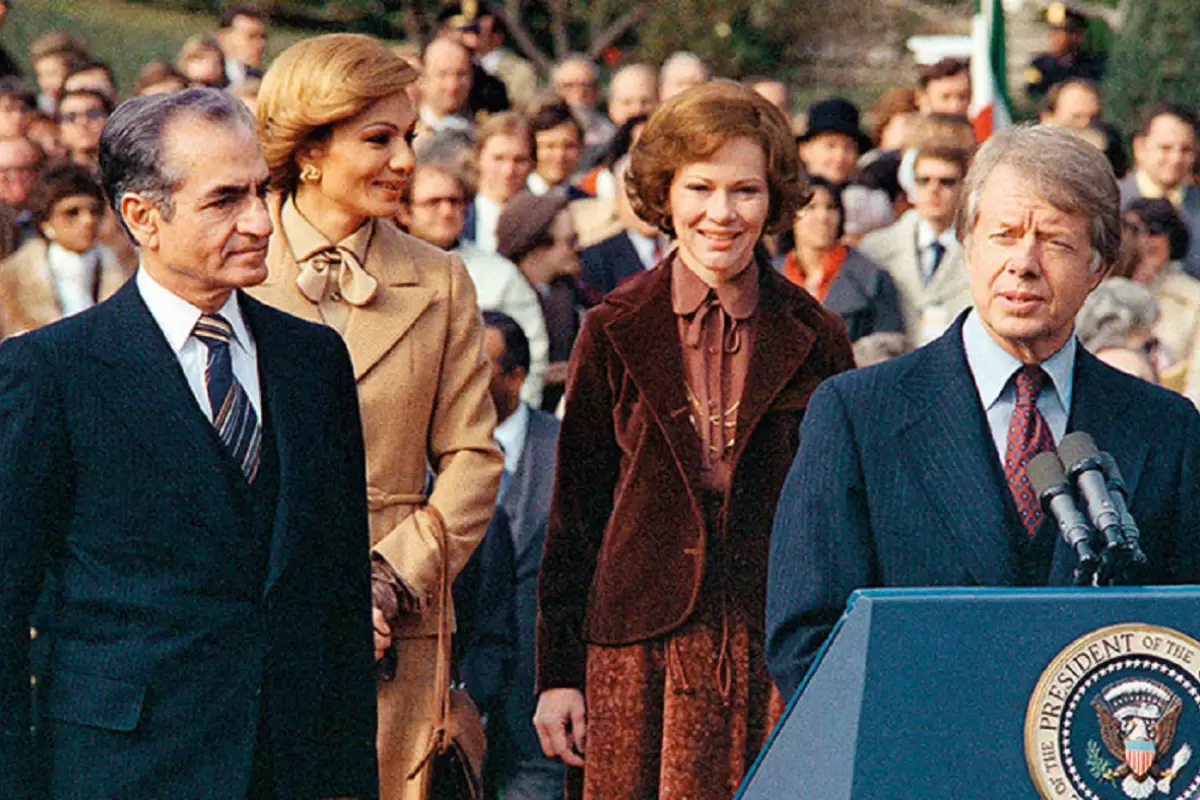
Carter’s Message to Ayatollah Khomeini
In a speech at the Sa’dabad Palace, Ebrahim Yazdi, the Foreign Minister of the Interim Government, revealed for the first time the messages sent by Jimmy Carter to Ayatollah Khomeini and Khomeini’s responses. This speech was published in the newspaper Ayandegan on August 6, 1979. Yazdi stated that these messages were sent in mid-January 1979.
In response to Carter’s emissaries, Ayatollah Khomeini declared: “Carter’s message had two main points: first, that we agree with the Bakhtiar government or at least remain silent and maintain calm during this period; and second, a warning or prediction of a military coup and widespread massacre of the people to intimidate us.
Regarding the Bakhtiar government, you are asking us to act against our principles. Even if I were to make such an error, our people would not accept it. Our nation has endured immense suffering and bloodshed to escape the monarchy and Pahlavi regime. They will not accept the continuation of monarchy or the return of a system even worse than before. They will not agree to the Regency Council, which I have repeatedly declared to be illegal.

Carter and the Shah of Iran: From the Island of Stability to Downfall
WANA (Dec 30) – Exactly on this day in 1977, Jimmy Carter made an unprecedented 19-hour Christmas visit to Iran and expressed support for Iran’s Shah with this statement: “Thanks to the Shah’s leadership, Iran is an island of stability!”. Now, On December 30, 2024, Carter passed away at the age of 100. This […]
As for calm, we always want our country to be peaceful, and we desire for our people to live in peace. However, achieving peace is impossible with the Shah in power. If Mr. Carter has goodwill and seeks peace, he should take the Shah away, stop supporting Bakhtiar, and submit to the legitimate will of the people.
Regarding the coup, I have been informed that a military coup is imminent, with plans for widespread killings. I have been asked to boycott American goods and warn the United States that if such a coup occurs, it will be held responsible.

If you are sincere in your intentions, prevent such bloodshed. Leave Iran to its people. Iran will not align with communism or other deviating ideologies. It will not submit to either the East or the West. I emphasize that the only way to achieve peace in Iran is to eliminate the illegitimate monarchy and let the people determine their future.
If a military coup occurs, I fear an explosion of violence in Iran that no one can control. The Iranian people are not afraid of a coup. For months, they have faced the harshest military oppression, yet the regime has failed to establish peace. The military is weaker and more divided now, and many soldiers will join us and crush the coup, although at a cost of bloodshed I do not desire.
I strongly advise you to prevent the coup, as it will harm both Iran and the United States. This is my complete message to Carter.”

